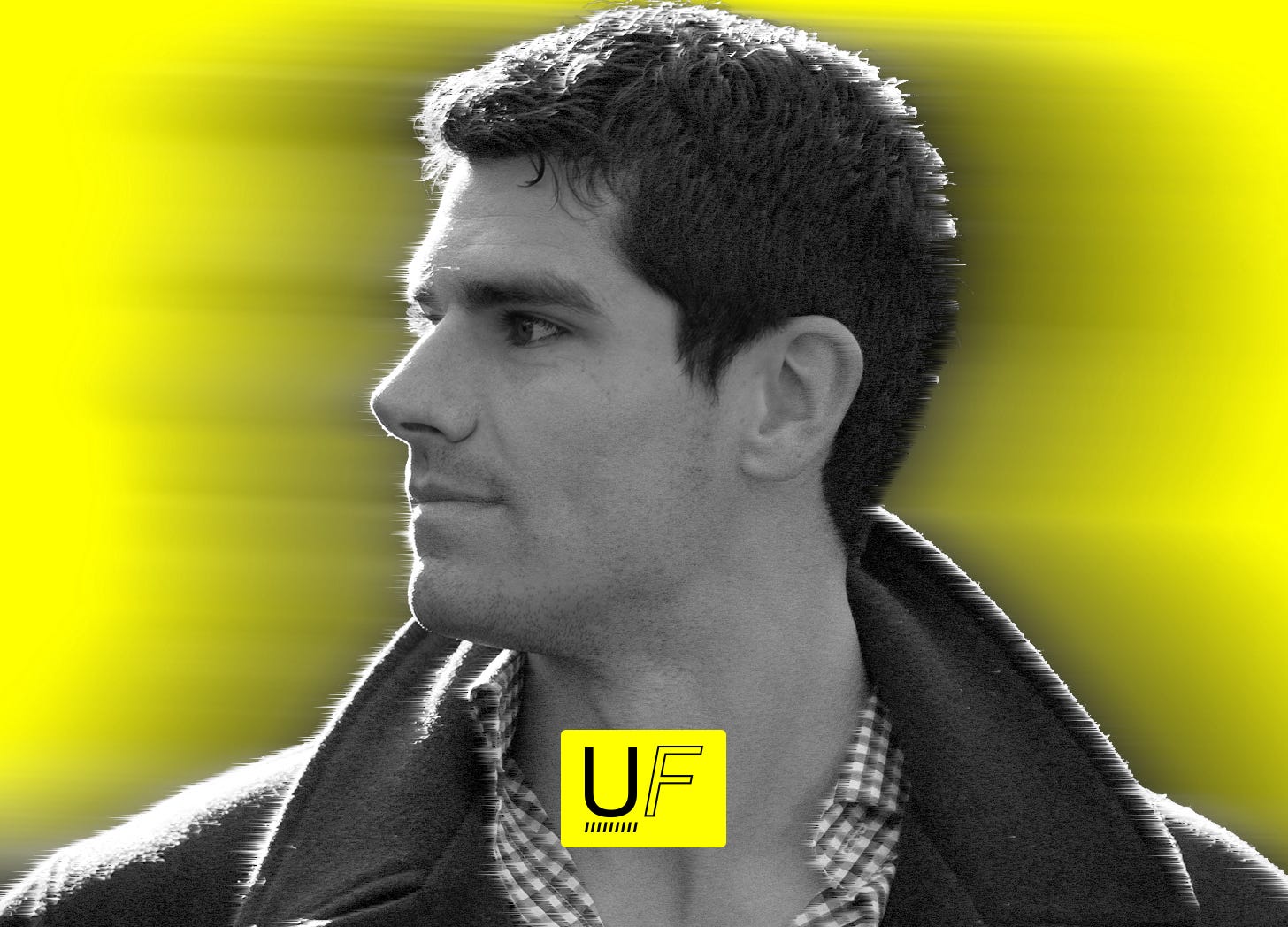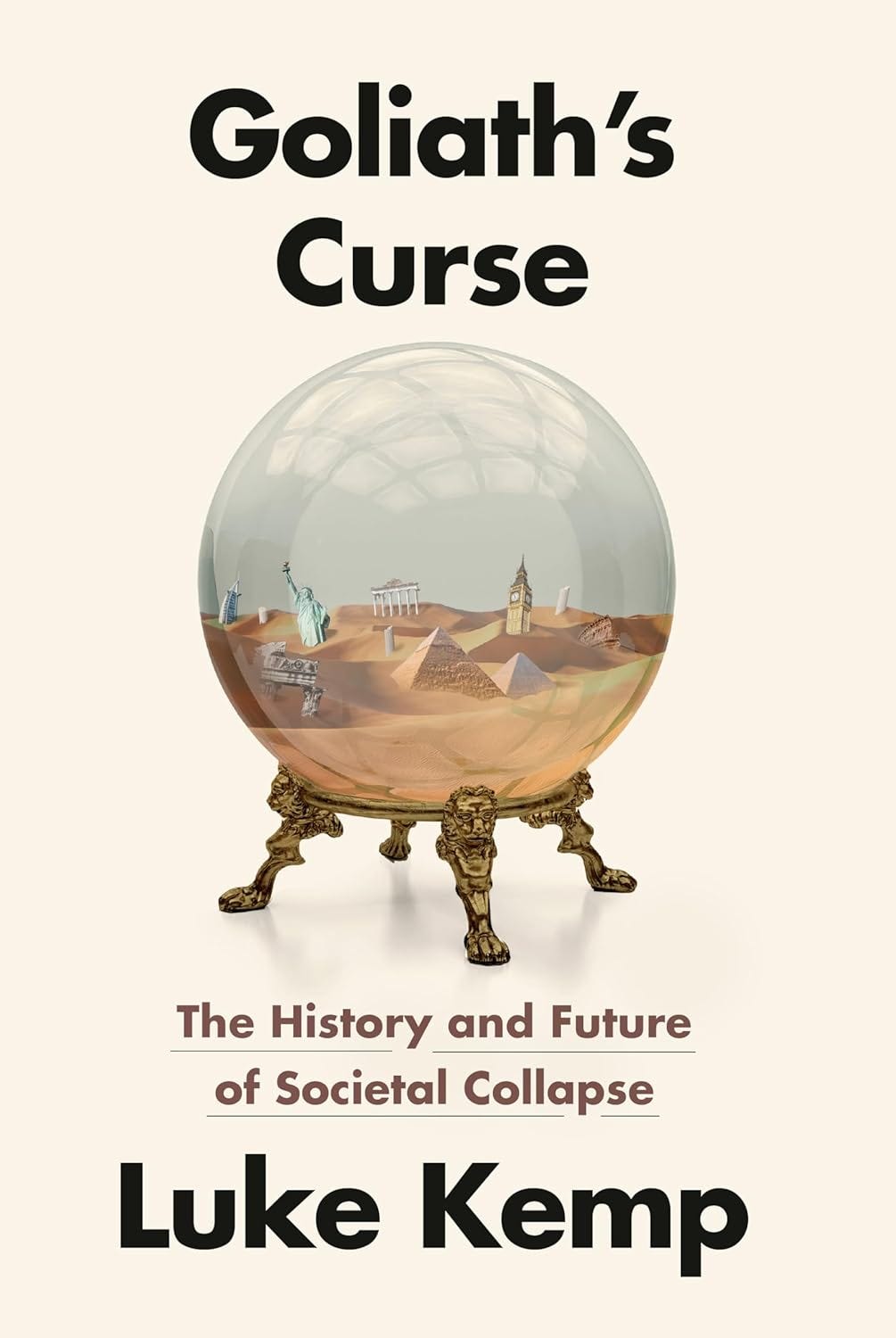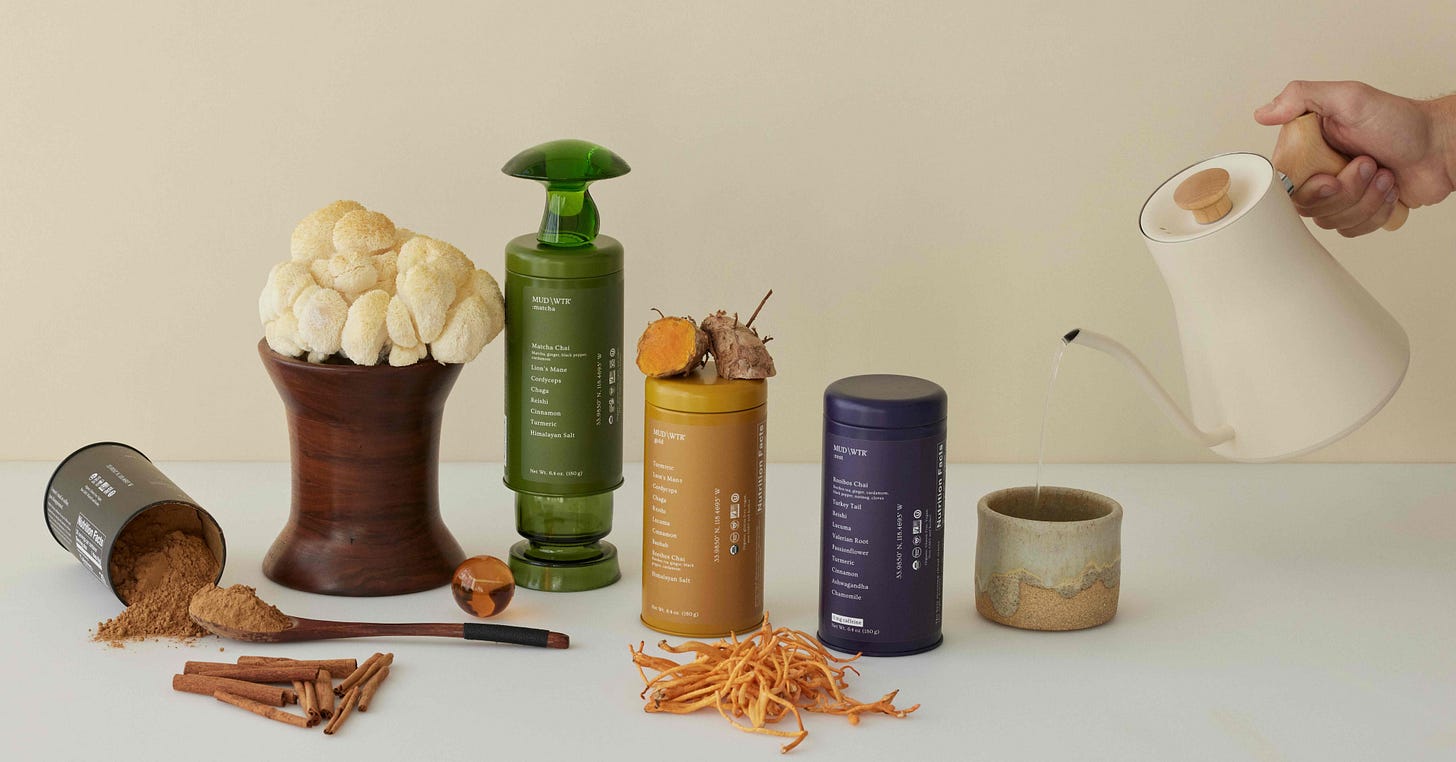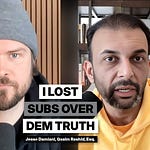Welcome to the Urgent Futures podcast, the show that finds {signals} in the noise. Each week, I sit down with leading thinkers whose research, concepts, and questions clarify the chaos, from culture to the cosmos.
👉 Never miss an episode! 👉 Subscribe to Urgent Futures now: Youtube | Apple Podcasts | Spotify.
And if you’re loving the show, please share it with a friend who you think would as well!
My guest this week is Luke Kemp.
Luke researches the end of the world. He is a Research Affiliate at the Centre for the Study of Existential Risk (CSER) at the University of Cambridge. He has advised and led foresight studies for multiple international organisations, including the WHO and Convention on Biological Diversity. His work has been covered by media outlets such as the BBC, the New York Times, and the New Yorker. He is the author of the bestselling book Goliath’s Curse: The History and Future of Societal Collapse.
I’ll be frank. If you’re looking to understand collapse from a systemic point-of-view, with the most contemporary research available, you have to start with Goliath’s Curse.
Buy Goliath’s Curse here!
“Collapse” is one of those words that’s bandied about a lot—especially with conversations about the future of the United States and U.S. hegemony—and is therefore prone to debate, misconceptions, and a variety of uses. Luke cuts through that noise to make the case that collapse isn’t just a sensationalist concept or a fringe worry—it’s a recurring feature of history in human societies, a cocktail of human evolutionary psychology and the power of symbolic communication, which allows us to craft stories and ideologies that, among other things, grant particular people the ability to cast themselves as more deserving of finite resources and form dominance hierarchies.
Before I go any further, I also want to give a huge shoutout to Onassis ONX Studio for making the space for this interview.
Combining empirical research, historical case studies, and contemporary global trends, he shows how what he calls goliath fuel—stuff like lootable resources and new technologies—allows for the formation of “goliaths,” a word he uses to sidestep the colonialist implications of “civilization,” going to pains to demonstrate how many of the empires we glamorize today were ruthless and brutal engines of domination. He also shows how these same features, which manifest broadly as systemic inequality, sow the seeds for the fall of these goliaths.
In this wide-ranging conversation, we talk about the patterns behind past collapses, why “collapse” doesn’t always mean apocalypse, and what insights from past collapses we should use to evaluate the current “Silicon Goliath.” We explore how factors like inequality, environmental degradation, and political fragility intersect in surprising (and not-so-surprising) ways, and why understanding these dynamics is crucial—not to amplify despair and nihilism, but to work toward more equitable, democratic, just social, political, and economic configurations.
If you’re looking for guidance and clarity around the past, present, and future of these goliaths, and how you might consider becoming a “David,” this is the conversation for you.
Another episode you might like:
Rachel Donald: Why is the World in Crisis—& What Can We Do About It? | Urgent Futures #40
Welcome to the Urgent Futures podcast, the show that finds {signals} in the noise. Each week, I sit down with leading thinkers whose research, concepts, and questions clarify the chaos, from culture to the cosmos.
Support Reality Studies
NOTE: Thank you for supporting my work by purchasing these products through the links provided. I will only ever share products I actually believe in.
In case you haven’t noticed, it’s time to take your digital hygiene seriously. There are a few super simple, effective things you can do to up your digital self-defense considerably, and the first is to get a VPN. ProtonVPN is the gold standard, with fast service and a commitment to transparency. I promise you: once you realize how easy it is to use your VPN, you’ll be kicking yourself that you didn’t start sooner. Click here to get 55% off VPN Plus ($4.49/mo).
1Password: Password managers may not make for the most riveting dinner party conversation, but listen: 1) They make your life so much easier—it’s called “1Password” because once you get set up it’s the only password you’ll ever need to remember again. 2) They make your online life so much safer, ensuring that you use unique passwords for every account, stored with a high degree of encryption. 3) They are not nearly as complicated to set up as you think they are! Head over to 1Password using this link for a free trial, and individual plans for less than $3/mo after that.
ZBiotics: Right now, get 10% off ZBiotics. Just head over to zbiotics.com and use code JESSEDAMIANI. If you have an evening with drinking and a morning you need to feel fresh, these are a great help. Genetically engineered by a team of PhD microbiologists, ZBiotics is a probiotic drink that breaks down the byproduct of alcohol responsible for rough mornings after drinking (acetaldehyde).
MUD\WTR: Right now, save $20 on starter packs using this link. There’s four different blends to choose from, but my current favorite is :rest. “This is our protest to hustle culture,” they say, and that resonates with me. Not only does it actually help me ramp down to sleep, but since I froth a little milk and make a latte with it, I get the warm cozy feeling of morning coffee at night. (For the evening tea drinkers out there: I’m not saying it’s better, just different!)
Mission Farms CBD: Right now, get 25% off your first order using this link to sign up for emails. Mission Farms CBD crafts full-spectrum CBD products for specific conditions like sleep, stress, and discomfort, using a combination of CBD and terpenes found in essential oils. I swear by this stuff. All of Mission Farms’s CBD comes from a small farm in Bend, Oregon. They farm the hemp organically, tend every plant by hand, and test for purity four times: the soil, the hemp, the hemp-extract, and the final products. This CBD is designed for wellness and it shows.
CREDITS: This podcast is edited and produced by Adam Labrie and me, Jesse Damiani. Adam Labrie also directed, shot, and edited the video version of the podcast, which is available on YouTube. The podcast is presented by Reality Studies. If you appreciate the work I’m doing, please subscribe and share it with someone you think would enjoy it.
Find more episodes of Urgent Futures at: youtube.com/@UrgentFutures. Past conversations include Taylor Lorenz, Lisa Messeri, Legacy Russell, William E. Rees, Renée DiResta, and more. Here is another recent episode with leading futurist Andy Hines discussing his decade+ research into “imagining after capitalism”:




















